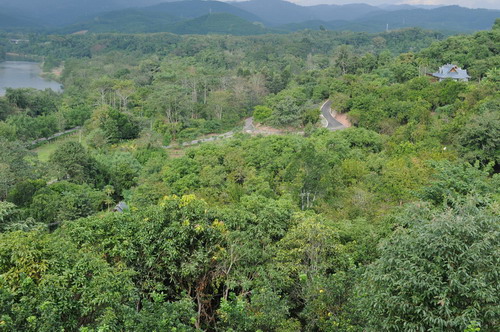Historically, human communities relied on edible wild plants for food. They are still a very important food source for many communities worldwide. Many of the wild edible plants have more benefits to human health when compared to cultivated plants. Benefits include greater percentage of medicinal ingredients, nutritional ingredients, and unique flavor. Moreover, wild species keep much richer genes, they keep genetic diversity and variability and are the most important genetic resources for the breeding of cultivated crops. For example, Yuan Longping made most of the male sterility of wild rice and captured the key technology of hybrid rice, which solved the food shortage problem for 1.3 billion Chinese people.
Supported by the technological innovation projects of the Chinese Academy of Sciences, and based on original specialized garden of wild vegetable plants, this specialized garden of wild relatives of crops starts founding in 2007, and after 4 years of hard work, it completes in 2011. The garden is built on a large expanse of land, around 100 mu (about 7 acre) which introduces and protects more than 500 species of wild edible plants and their cultivated cousins. They are reared separately in different areas, such as: wild edible fruits area, wild edible flower area, wild edible leaf and brunch area, and wild edible root area with wild edible plants and their cultivated cousins surrounded and decorated among them. Right now, it is the largest specialized garden, which has introduced and protected the biggest number of wild edible plant species in the world.

Image by Duan Qiwu

